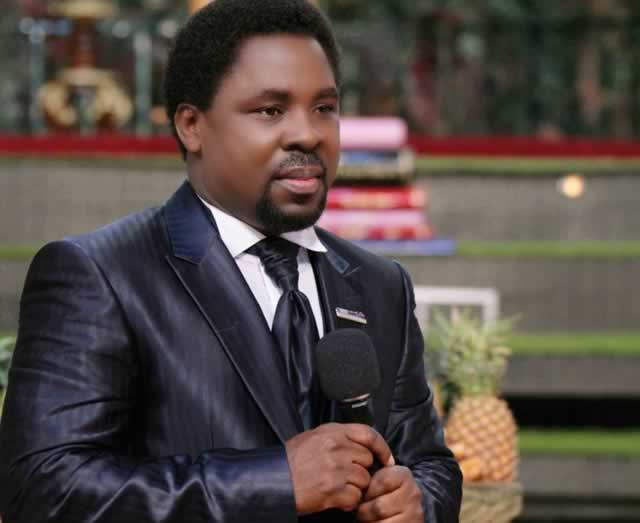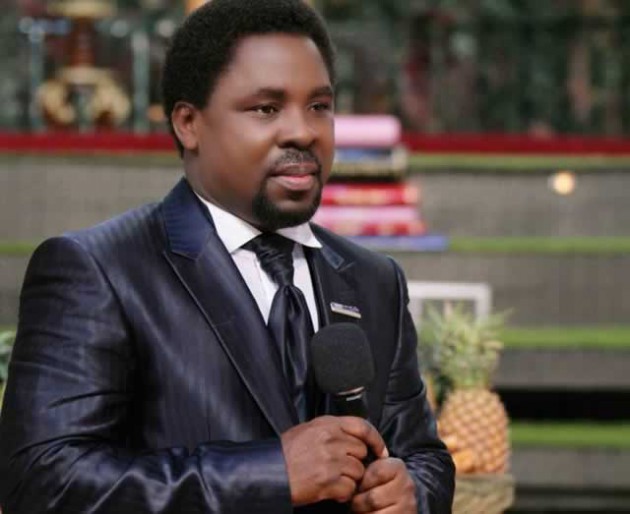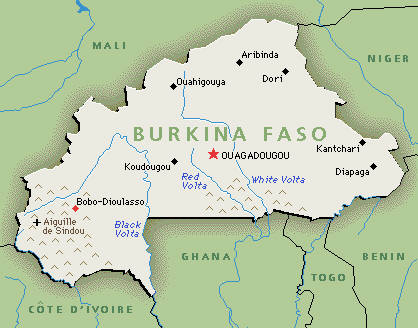Nigeria: The rise and (what?) of prosperity preachers

Peter Ezeh Correspondent
NIGERIAN evangelism has been reshaping Christianity in this part of the world for some decades now. But this year has been one of tribulation, almost of biblical proportions. The clergy of the new Pentecostalism and their miracle-centred brand of prosperity theologies had managed to bring the majority of Nigerians under their thumb, but 2014 will now be recorded as their annus horribilis, to use Her Majesty’s famous Latin phrase. No year since the ascendancy of this brand of Christianity in Nigeria’s public space, have things fallen so much apart for the men of the Bible.
Two events in particular stand out. Firstly, there was the collapse of a six-storey guest house belonging to one of the most publicised of these churches that goes by the curious name of Synagogue Church of All Nations. Belonging to the flamboyant self-proclaimed prophet TB Joshua, a household name across Africa and its Diaspora, the collapse led to the death of at least 115 worshippers, some of whom had come from as far afield as South Africa.
The second event was the seizure in South Africa of an allegedly leased private aircraft of Pastor Ayo Oritsejafor’s, whose Word of Bible Church is based in Warri in the Niger Delta. The aircraft was taken on the suspicion that it contained over 9 million illegal dollars on board.
As both events involved South Africa, they were picked up by the international media. After President Jacob Zuma said that 85 of his citizens were among those that died in Pastor TB Joshua’s guest house, the youth wing of the ruling African National Congress demanded that their government ban TB Joshua from visiting South Africa. TB Joshua (full name Temitope Balogun Joshua) had said that he would go to South Africa to meet survivors of the tragedy. About 200 kilometres further east from the site of the calamity in Lagos, a church house under construction in Benin City, belonging to a different group known as the Christ Chosen Church of God, also collapsed. One person died and several others were injured. The governor of Edo State where it happened, Cambridge-trained trade unionist-turned-politician, Adams Oshiomhole, in a prompt reaction promised to investigate and sanction all those found culpable.
After the church houses came down, the Senate debated cases of collapsing Nigerian high-rise buildings but commentators in the media were angry that nothing specific was said about the events that had led to the debate. One of the senators, Ben Ayade, argued that Nigerian churches behaved as if they were above the law, thereby creating problems for the efficient functioning of relevant state institutions, even on extremely risky matters like the quality of high-rise buildings.
“Religious organisations over time have assumed celestial heights in a way and manner that most of the time, it is difficult for those who are responsible for enforcing regulations to be able to enforce them on churches,” he said, without mentioning any churches by name.
One writer, in Vanguard, summarised the evolution of relations between Nigerians and Christianity since its introduction in the 19th century up until the present like this: “When the white man came to Africa to preach and spread the gospel, he was altruistic, truthful and selfless . . . They set up schools which many attended without paying anything or just (paid) a token . . . So we became educated, learnt the art of preaching . . . Many left the early believers behind as old school, those born before . . . The born-again knew the way to wealth. The message changed from salvation to prosperity.”
Another writer in Punch, focusing on the official reaction to the collapse of the Lagos church building, said: “If Nigeria was serious about taking decisive legal steps over the accident, they would have proceeded with a serious investigation, not empty gestures.”
TB Joshua countered by saying that he suspected terrorism in the fall of their building. His group said that a small aircraft flew over the building before its fall, a view which drew more anger from media commentators who saw that as an attempt to deceive the public.
“I don’t believe any of Joshua’s stories,” wrote Comfort Obi of the Source weekly.
She argued that if the plane narrative was to be accepted, there should be evidence that a bomb or any other device, metal or chemical, was thrown at the building.
Obi’s argument seemed to make sense to many because if the building fell simply because a plane flew over it, then all the other buildings that it flew over should also have fallen. The writer rather suggested a different factor; inadequate attention to architectural requirements for a building of that type.
“This was a two-storey building suddenly being raised at lightning speed to six storeys.”
Officials of the Lagos State government were reported as saying that they didn’t approve the request to add more floors to the original two storeys. The General Manager of the state’s Building Control Agency, Abimbola Animashaun-Odunayo, said that the agency tried to stop the builders at the site but their order was ignored.
President Goodluck Jonathan later visited the church and said that the Nigerian government would investigate the accident. He also said that the broader subject of the quality of high-rise buildings in Nigeria would be discussed.
Flying for God
Pastor Oritsejafor denied any complicity in his aircraft’s involvement in the alleged illegal conveyance of $9.3 million cash to South Africa to buy arms. He explained to a meeting of Nigerian church-leaders that the aircraft was on lease and it was not his obligation to monitor what it was being used for.
Daniel Reyenieju, a member of the federal lower legislative chamber, the House of Representatives, from the same state as Oritsejafor, said that the pastor was not to blame.
“The money belongs to the Federal Government of Nigeria, which the government has openly acknowledged,” he told a Lagos newspaper.
Some commentators in Nigeria were unconvinced. Okey Ndibe, a Daily Sun columnist, recalled that in an earlier controversy on the private jet two years previously, when the churchman said that the aircraft was given to him by his church as a birthday present, and members of the public considered it an unconscionable luxury for a pastor. The clergyman countered by saying that he needed a private aeroplane to facilitate his evangelical work.
The columnist went on, “Now, with the jet caught in a questionable alleged deal, the pastor washed his hands of the scandal, how has the preacher has been faring in doing ‘God’s’ work without his cherished jet”.
Abimbola Adelakum, writing in Punch, summarised the disbelief in the wittiest article on the subject.
“Verily, verily, I say unto them,” she punned in reaction to the denials from Pastor Oritejafor’s quarters, “it would have been better for their image if Oritsejafor’s private jet had been caught shipping condoms rather than arms.”
It was an article where she also took on the dandyish Pastor Chris Oyakhilome, who has also been in the public gaze following allegations by his estranged wife, Anita, about his dating a member of their church, the Believers LoveWorld Ministry, which Nigerians are more familiar with by its alias, Christ Embassy. Anita is also a minister in the church. Guests in many top Nigerian hotels will still find booklets co-authored by the couple preaching marital fidelity, payment of tithes and other virtues of the Church, written before the scandal blew open and Pastor Anita filed for divorce in a London court.
Ecclesiastical politics
All in all, it has been a difficult year for the Nigerian new-generation evangelical churches, whose influence on the public has grown so much that the older-model churches have been trying to modify their strategies so as to stem the exodus of their congregations to their new-breed competitors, which come with more charismatic and ebullient preachers. But the new evangelical churches are increasingly not having it easy.
Apart from the above-stated recent developments, there have been other troubles for the evangelicals, including a rise in church brawls between pastors and their flocks, sometimes even over something as ridiculous as sharing meat! The Sun of Lagos reported how one pastor and his wife were roughed up in a struggle over how to share a cow that someone had brought as an of- fering.
“They beat me as if I was a criminal, to the extent that I fainted,” the pastor told the paper.
A new leadership of the much-respected Presbyterian Church, in an attempt to re-brand in the face of the competition for church members, brought in a proposal that ended up splitting the church into two factions, to the shock of dedicated followers. The pioneer Pentecostalists, the Assemblies of God Church, has also split.
Their quarrel is over disagreement on the legitimate head of the Church, following the rejection of an academic who claims to have been elected into the position but whom others claim was sacked from the post. In a paid advertisement in The Nation newspaper of Lagos, five members of the clergy leading one faction accused their rival of diverse wrongdoings. But speaking to New African, the Reverend David Ononogbu from the University of Nigeria, Enugu State, where he doubles as a Presbyterian parson and a lecturer in religious studies, believes that something good could still emerge from all these crises.
“We cannot teach God. He tells us to give thanks to Him in everything,” he says calmly.
His colleague in the Department of Anthropology, Chidi Ugwu, takes a sociological view of the matter: “We have a secular state that is just secular in name. These days those who should check the excesses of religious leadership feel intimidated, especially if it is to do with the sects they have compromised themselves with, one way or another.”
Social scientists who carry out such a dispassionate study of Nigerian new-generation churches are generally unsure of where they are taking the society at large. What they are sure of, though, is that these churches are destroying the familiar order, and vitiating the institutions of the nation-state, even if they are not conscious of this consequence.
Professor Sam Krinsky, who as a Fulbright scholar, stayed at the University of Ibadan, in south-west Nigeria, to study the Pentecostals and their prosperity theology, concluded in an article published in the Nigerian Journal of Sociology and Anthropology, that the movement had deleterious effects on the indigenous social institutions, but doubted whether it was replacing these with anything that was worth the effort.
“That this (religious) movement has captured the imagination of so many young Nigerians striving to transform themselves, their lives, and their society, should be beyond doubt . . . whether for better or worse is a question still very much up in the air.”
Dr Ezeh, full name; Peter-Jazzy Ezeh, is one of New African magazine’s longest serving correspondents. This article is reproduced from New African magazine.











Comments